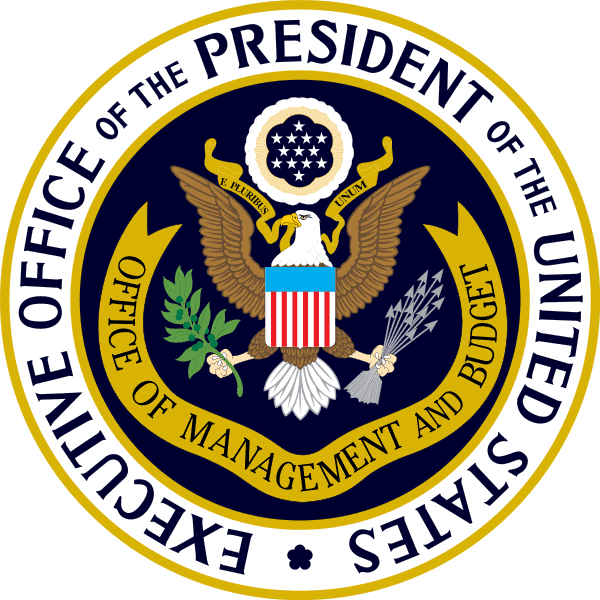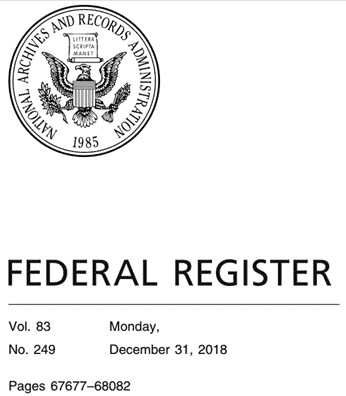Trump’s 2018 Deregulatory Effort: 3,367 Rules, 68,082 Pages

 At year-end 2018, how is President Donald Trump’s regulatory reform project going?
At year-end 2018, how is President Donald Trump’s regulatory reform project going?
Better than Obama, Bush II, and Clinton in terms of fewer regulations; but not as good as Trump’s own first year.
Let’s look at it. Monday, December 31, 2018, is the last federal workday of the year. That would seem obvious, but a partial federal shutdown on December 22 made clock-out earlier for some.
Nonetheless, a preliminary tally for Federal Register page and rule counts for Trump’s 2nd calendar year has appeared, even though “[d]uring the funding lapse, Federalregister.gov is not being supported.”
The Number of Pages in the Federal Register
First, some perspective from a year ago; 2017 concluded with 61,308 pages under Trump; that was the lowest count in a quarter-century (since 61,166 pages under Bill Clinton in 1993). Former President Obama set the all-time record Federal Register with 95,894 pages in 2016.
This time, 2018 Federal Register has topped out at 68,082 pages. (Here’s the December 31, 2018 cover.) That’s a 10 percent increase for Trump over his first year.

It’s not as bad as it seems, though. While the Framers were unable to secure the blessings of liberty for posterity, the architects of the 20th century Administrative State have been able to secure a system of permanence for their successors. Rules and regulations cannot be revoked, only replaced by new ones under the 1946 Administrative Procedure Act’s public notice-and-comment process. (And things get even far more convoluted than that.)
So, for Trump to get rid of a rule (recall his directive to eliminate two significant rules for every one adopted) his agencies have to write a rule. So in a perverse sense, he can’t shrink the Federal Register page count and the number of rules, but has managed to do it anyway by writing fewer new regulatory rather than deregulatory ones. Meeting the two for one directive is getting tougher without congressional action as the low-hanging fruit is picked.
Here’s the breakdown of both page counts and rules (which we’ll cover next) in the Register since 1989 under the first Bush. Despite the 2018 Trump-bump in pages, 2001 was the last time the count was lower than 2018.
Year Pages Rules POTUS
1989 50,501 4,714 The Bush I years
1990 49,795 4,334
1991 57,973 4,416
1992 57,003 4,155
1993 61,166 4,369 The Clinton years
1994 64,914 4,867
1995 62,645 4,713
1996 64,591 4,937
1997 64,549 4,584
1998 68,571 4,899
1999 71,161 4,684
2000 74,258 4,313
2001 64,438 4,132 The Bush II years
2002 75,606 4,167
2003 71,269 4,148
2004 75,675 4,101
2005 73,870 3,975
2006 74,937 3,718
2007 72,090 3,595
2008 79,435 3,830
2009 68,598 3,503 The Obama years
2010 81,405 3,573
2011 81,247 3,807
2012 78,961 3,708
2013 79,311 3,659
2014 77,687 3,554
2015 80,260 3,410
2016 95,894 3,853
2017 61,308 3,281 Two Trump years
After the National Archives processes all the blank pages and skips and archived the final 2018 Federal Register, Trump’s final count will wind up a bit lower.
Yes, the Federal Register’s bulk is a lousy gauge of regulation, but Washington doesn’t go out of its way to honestly measure itself and disclose regulatory impact; and while everybody sings the song, cost-benefit analysis is the exception rather than the rule.
The Number of Rules and Regulations in the Federal Register
Under Trump, there has also been a substantial reduction in the number of rules and regulations published within all those Federal Register pages.
The Federal Register closed out 2018 with 3,367 final rules in all. The only lower count was 3,281 under Trump a year ago, which was the lowest count since records began being kept in the mid-1970s.
Back in the 1990s, rule counts were regularly over 4,000, as seen nearby. Even Obama’s exit count of 3,853 was below those stratospheric levels. Of course, not all rules are created equal and rules comprising fewer pages can weigh more than lengthy ones.
Obama’s own lowest count was 3,410, not much more than Trump’s new score. But fewer of Obama’s rules would be expected to have been devoted to rollbacks of prior initiatives, the emphasis of Trump’s “one-in, two-out” executive order.
Even without congressional action Trump made significant strides in regulatory streamlining (regulatory reform passed the House but could never get through the Senate in the now-shuttering 115th Congress). There are exceptions to that, of course, that I’ll cover another day.
For now, since a rule has to be written to get rid of a rule, Federal Register and rule counts can both grow even in a deregulatory environment, unless Congress short-cuts the process with reform legislation.
That reform will be even less likely in the 116th Congress under Democratic leadership. So Trump’s next move should be an executive order on regulatory streamlining, with specific emphasis on agency guidance documents, that, while they are not formal regulations, nonetheless can have regulatory effect on the public.
Trump also needs to tweak Federal Register reporting so that proposed and final rules are each explicitly deemed either “Regulatory” or “Deregulatory,” which would make next year’s roundup more informative.
And speaking of next year, Happy 2019!